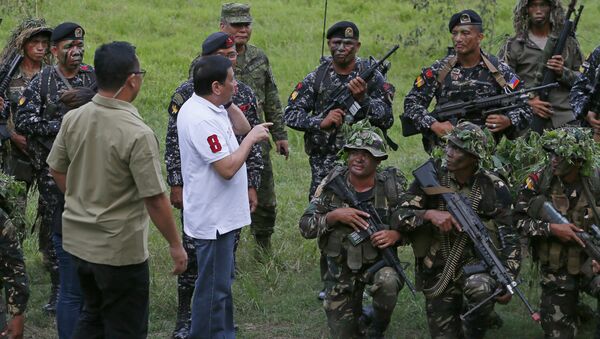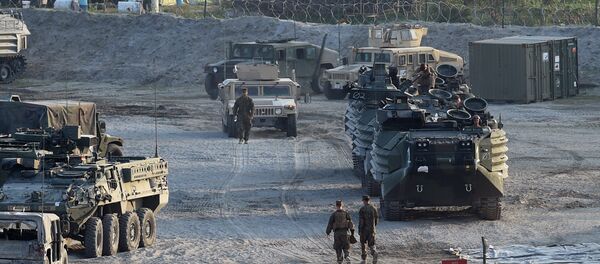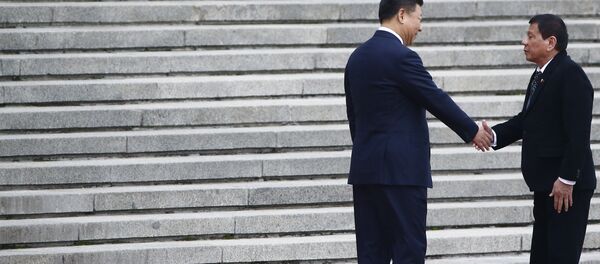The interview came after Duterte reiterated Manila's intention to occupy a number of islands in the South China Sea. He announced the plan in early April, when he signaled his readiness to personally visit one of the Spratly Islands and raise the Philippine flag there.
By doing so, Duterte actually declared a confrontation with Beijing, which claims the entirety of the South China Sea for iself. Beijing immediately expressed concern over Duterte' statement, in what was followed by the Philippine President canceling his trip to the Spratly Islands.
Philippines to inhabit Spratly Islands in defiance to China. https://t.co/zINFVtuZ6j
— Proelium Law LLP (@ProeliumLaw) 7 апреля 2017 г.
He said that "China can relax because we are friends and we do not intend to unleash a war with Beijing."
However, speaking to journalists in Qatar on April 15, Duterte said that he gave the army an order to quickly occupy and accommodate the ten uninhabited islands of the Spratly archipelago, which Manila calls the Kalayaan islands.
He described the islands as "the property of the Philippines," saying that "everyone is now trying to grab any piece of land in the South China Sea, and if we do not act quickly, we will not get anything [there]."
Commenting on the matter, Dmitry Mosyakov said that from the very beginning of his presidency Duterte has been trying to choose between China and the US in terms of political preferences.
China controls Scarborough Shoal, but allows small boats from Philippines to fish there https://t.co/hCTqVHOase pic.twitter.com/5B8JaTMA16
— SCMP News (@SCMP_News) 10 апреля 2017 г.
At first, Duterte took China's side, counting upon Chinese investment and closer bilateral cooperation. China has, to some extent, justified these hopes by, in particular, allowing the Filipino fishermen to fish from the occupied Scarborough Reef, which are considered by that Manila to be an essential part of the Philippines.
"But everything has changed dramatically. The US missile attack on a Syrian airbase, the blast of America's most powerful bomb in Afghanistan and the three US aircraft carrier groups off the Korean Peninsula showed that US policy is drastically changing, and that at any moment, Washington is ready to intervene in this or that situation using significant force," Mosyakov said.
According to him, under this state of affairs, "President Dutterte has made a new U-turn by again prioritizing Manila's cooperation with the United States.
#Philippines troops to occupy remaining uninhabited islands in South China Sea & heighten expansion race with #China https://t.co/IQnRfXJ8M2
— Project 2049 Inst (@Project2049) 17 апреля 2017 г.
"The classical short-term policy of balancing has become trademark of Manila's foreign policy," Mosyakov pointed out.
He said that despite his eccentric moves, President Duterte remains a realist who sensibly assesses the situation most favorable for his country and is building up the country's foreign policy based on the changes that are taking place in the global confrontation between the US and China.
"Right now, the US is demonstrating determination and strength, and Dutherte is oriented toward the White House. If tomorrow he sees strength and determination of China, Manila's political course will once again be reoriented. Balancing remains the core of the entire foreign policy pursued by the Philippine President," Mosyakov concluded.
China, the Philippines, Brunei, Malaysia, Vietnam and Taiwan are all claimants on parts of the waters and its islands and reefs.
Adding to the South China Sea dispute is the Philippines increasing financial reliance on China, pivoting away from the US.
Never miss a story again — sign up to our Telegram channel and we'll keep you up to speed!





